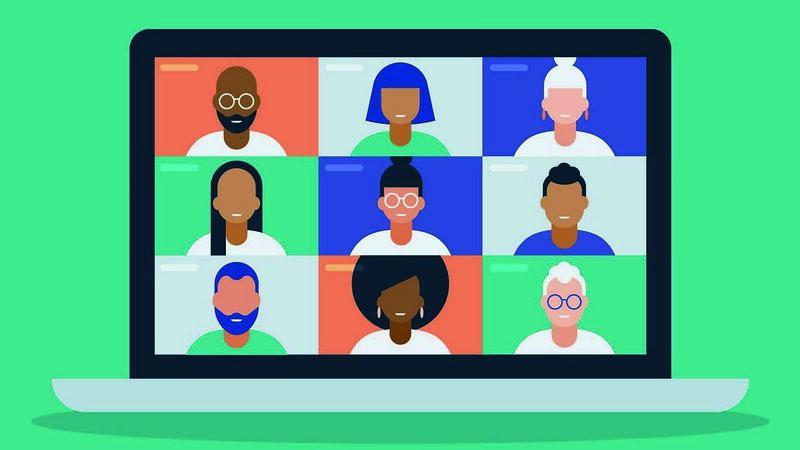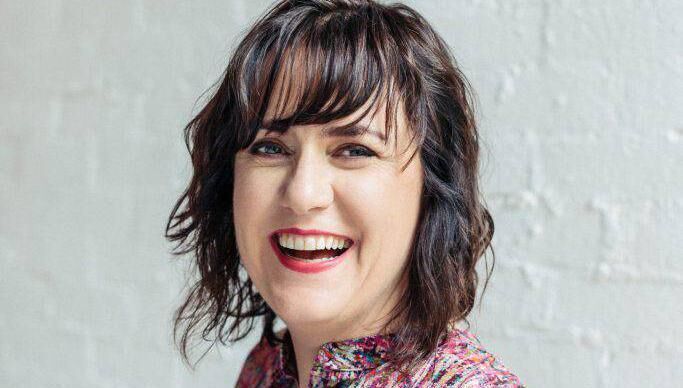The WFH revolution: are we happier now that we work from home?

What’s that old adage? Ah yes, “be careful what you wish for”.
For many people, the dream of working from home hasn’t turned out to be a fairytale at all, but more of a fiction. What was supposed to be a month-or-so-long reprieve from the humdrum routine of alarm clocks and bus timetables, cubicle claustrophobia and 4pm water-cooler conversations looks likely to last at least a year, and for many it’s beginning to feel more imprisoning than those old-fashioned punchcards.
The way we work is undergoing a seismic shift. Whereas companies would traditionally have feared a dip in productivity from staff members who worked from home, a survey conducted in April by Irishjobs.ie found that 44% of individuals working remotely are putting in longer hours than they did in the office.
There’s a misguided belief in a lot of workplaces that presenteeism equates to productivity. In fact, when you’re not visibly present, you must justify how you’ve spent your hours at home with tangible output. I follow Jo Ellison on Instagram, associate editor of the FT; she recently posted her thoughts on having spent two days in the office. They were as follows: “Productivity down 50%, associated costs up 200%, technical issues up 100% and Zoom backdrop up 80%.”
No doubt, employers will be pleased with the productivity results from the Irishjobs survey, but they may also be surprised to know that 79% of those questioned said they missed their usual working environment. I can imagine Google employees missing the free food, recreation rooms and gym classes, but for many people, office life has always equated to microwavable lunches, meetings about meetings, and sitting it out until the official end of the day, whether you’ve reached a natural cutoff point or not. Despite all of these negatives, the draw of human interaction appears to trump everything else, because 89% gave socialising with colleagues as their main reason for missing the office.

Business owner Emma Kelly, who founded Elevate PR almost two decades ago, agrees some employees will want to return to the office for the benefits of social interaction. She also believes ambitious employees will always want to be ‘seen’ to improve their chances of career progression. “For me professionally, after running an agency for nearly 20 years, I have enjoyed the slower pace and time for reflection,” she says.
Elevate had already been using Zoom regularly to speak with international clients, so Emma has found the transition to remote working a fairly smooth one. “While I don’t worry about productivity, I do worry about morale, training newer colleagues and creativity,” she says. I can imagine a lot of creative organisations are missing those spontaneous brainstorming sessions that don’t just lead to ideas, but to a collective enthusiasm and excitement about upcoming projects. Can Zoom deliver on this? Anecdotally, it seems not.
Working from home can be a lonely existence, but in a pandemic, it’s positively desolate. Offices have been literally shut down, off-limits, no-go areas. Had we all been granted permission to work from home before Covid-19, there would have been
occasional in-house meetings and workshops, the option to spend a day or two a week in the office if desired, and overall a more fluid remote-working package than the drastic measure to send everyone home full-time for the foreseeable future. It’s felt more like a school suspension than a pardon.
I’ve been working from home as a freelance writer and editor since January. I’m an introvert, so I’ve embraced the solitude, and I think I could be quite happy working this way in the long term. My only concern, though, is that once you step back from the outside working world, it’s more difficult to re-engage.
In my last job, I was constantly interacting with others; I oversaw fashion shoots, hosted events, co-hosted a podcast, and I had regular meetings with colleagues and clients. However, 2020 has been such a long, dispiriting year that all of this feels like 10 years’ ago not one. Will these nine months of seclusion set me back? If I need to be ‘out there’ again, will I have the confidence to do it? Or will I wind up like Wilson from Home Improvement, only capable of brief interactions through a wall of wood?
Remote working can invite paranoia too. I’d be lying if I said I didn’t keep an eye out on Instagram to see if there are any fashion events happening that I haven’t been invited to. I certainly feel less connected to my industry sitting in a suburban home office. Emma also makes a good point about ambitious employees wanting to be ‘seen’.
When you’re young and you have your eye on the next career prize, it must be unnerving to feel so removed from your peers and superiors.
I just completed my first week in my new job - having met an entire office on Zoom from my mam's sewing room - and I am SPENT 😭. Job hunting/starting a new job during a pandemic might be one of the most stressful things I've ever done so I'm ONLY doing nice things today
— Niamh O'Donoghue (@Niamh_Not_Neeme) September 12, 2020
Niamh O’Donoghue is a 26-year-old Dubliner, who, for the past year, has held the position of associate social media editor at British Vogue. She went from being based in the glamorous offices of Condé Nast’s Vogue House in London to working out of her childhood bedroom in her parents’ house in Cabra. Like a lot of millennials, she misses the energy of being in an office every day.
“I’m a creative person, so I’ve found working from home to be, at times, a real challenge. The energy of London is electric: I miss grabbing a coffee at Pret-A-Manger and taking five minutes in the sun outside Vogue House to see who might be going through its revolving doors. I miss the buzz of Oxford Circus and window shopping on my way home. Most of all, I miss seeing my team IRL.”
My sister, on the other hand, who’s in her 50s and works for an American multinational, couldn’t be happier working from home. She no longer sits exasperated on the motorway twice a day; there has been no falloff in her, or her team’s, productivity; she has frequent Zoom and conference calls, but because many of these are with international colleagues, it feels no different to pre-pandemic times; and she has the pleasure of walking her dog each morning and still being at her desk earlier than 9am. She feels she’s winning all round.
There does appear to be an age divide in how individuals are coping with this new regime. I suspect there are plenty of millennials working out of tiny bedrooms in crowded house shares who are desperate to return to generous workspaces, free refreshments and office gossip.
In the meantime, there are ways of making remote working more fulfilling and less isolating. We all understand the practicalities: don’t work from the sofa in your pyjamas and carve out your core working hours so your professional and home life don’t bleed into one. There are several ways you can improve the overall experience from a mental health perspective.
For me, it’s very much about framing my day in a way that I couldn’t, were I still based in an office, and adding enjoyable punctuations to my routine. So when I wake up in the morning I go for a walk; I have a dog which does provide more of an incentive, I’ll admit.
There’s a whole community of early morning walkers out there, which you’ll immediately feel part of and connected to. Plus it always seems like such a luxury to wander around a park on a random weekday morning.
When I worked in an office, lunch was always at my desk. At home, I take at least a half-hour away from my office, and I give lunchtime a sense of occasion by making something that feels more special than a cellophane-wrapped toasted sandwich; a freshly made omelette or homemade bread, for instance. I listen to the radio or watch an episode of Derry Girls, or something similar that will boost my mood.
For those of you, like me, who have no need for Zoom meetings or conference calls, touch base with a friend or whoever in your office you would usually have chatted to when you had 10 minutes to spare. The truth is that you can create the most ergonomic and Instagram-worthy workspace, but really, human connection is the key to surviving this new normal. However, according to Psychology Today, plants and natural materials in a workspace can increase attentiveness and reduce blood pressure, while workers who sit with a view of the outdoors have been proven to perform 25% better.
Beyond this, just remember that nothing lasts forever. Life being what it is, I can imagine at some point we’ll all look back at this hiatus from traditional office life as a gift. Some will simply need the benefit of hindsight to do so.
CONNECT WITH US TODAY
Be the first to know the latest news and updates





